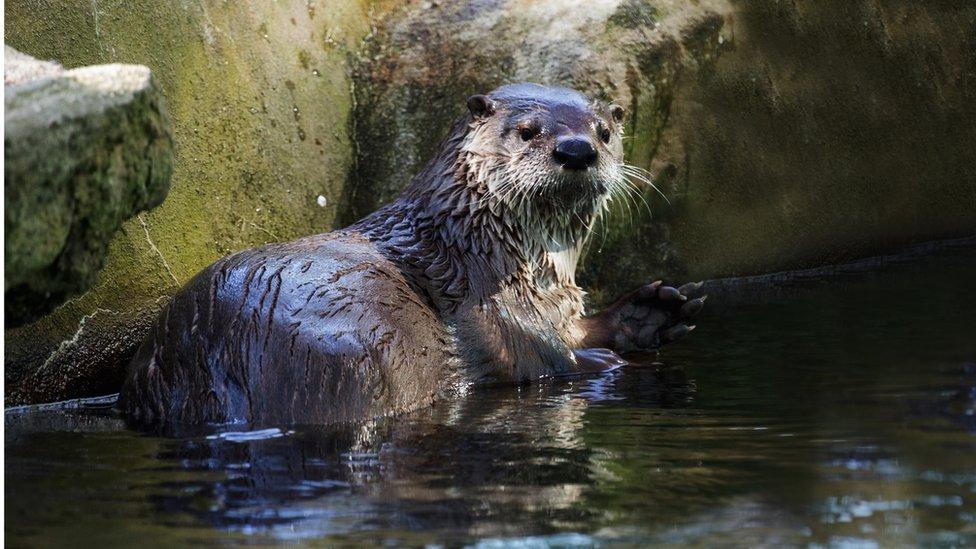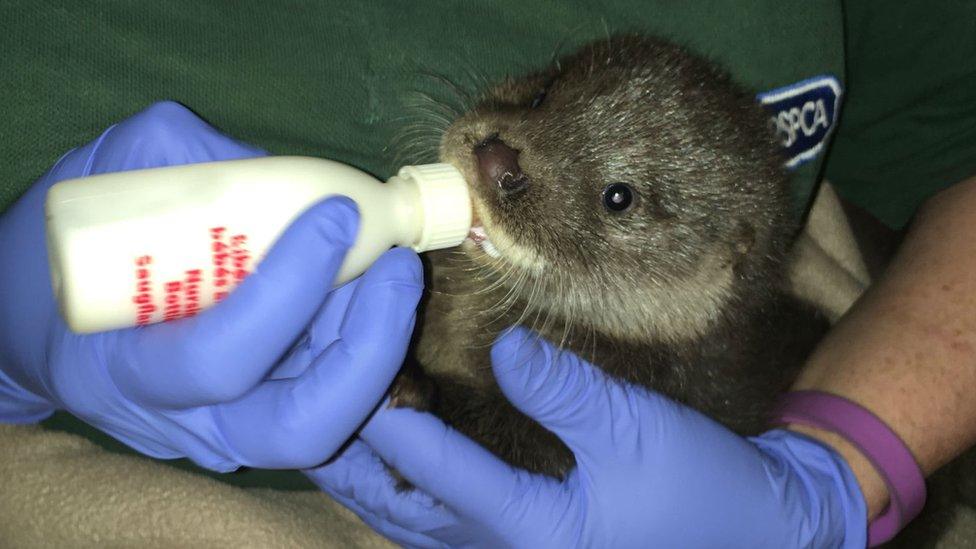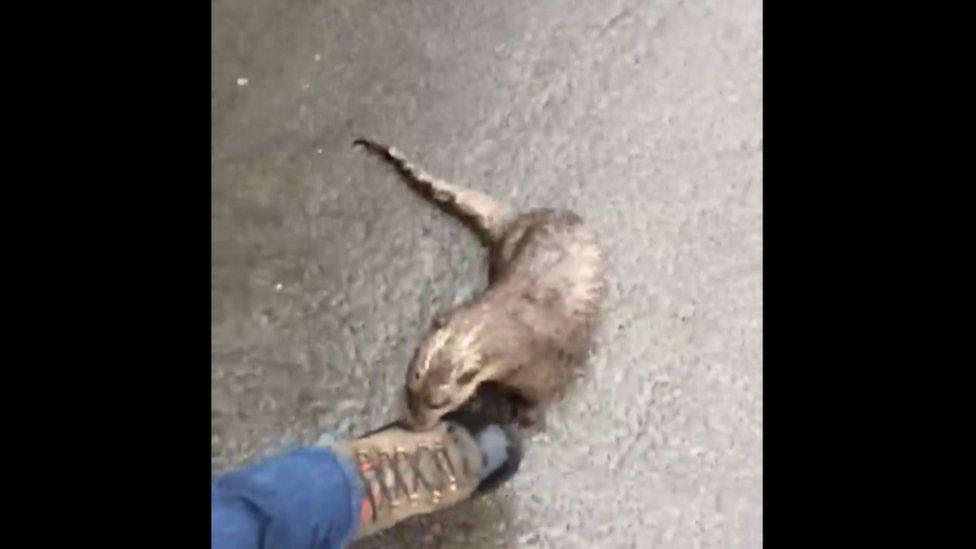Wild otters speak with distinct smells, Cardiff uni finds
- Published

Wild otter populations have their own regional odours for communicating with each other, new research has found.
Cardiff University previously found secretions from an otter's glands are linked to its age, sex, reproductive status and individual identity.
Its latest study suggests otters from different parts of the UK are genetically distinct and have "different odour dialects".
It means they may not be able to understand each other.
This, the report said,, external could have implications for wild mammal conservation efforts.
Dr Elizabeth Chadwick from the university's school of biosciences, said the findings "raise some interesting questions".
"In the same way that people from London may not understand some of the verbal dialect of people from Cardiff, groups of otters with different odour dialects may not be able to pick up identifying information from each other."
She added, without further research, it remains unclear how otters interpret the chemical differences.
"If they don't like or understand unfamiliar scents these differences might hinder mixing - in the same way that people sometimes avoid those who are culturally different," she said.
However, Dr Chadwick said genetic diversity "makes individuals healthier".
"Being attracted to unfamiliar-smelling otters might be part of an evolutionary mechanism to avoid inbreeding, and drive genetic mixing," she said.
- Published14 December 2010
- Published9 March 2017

- Published16 May 2017
